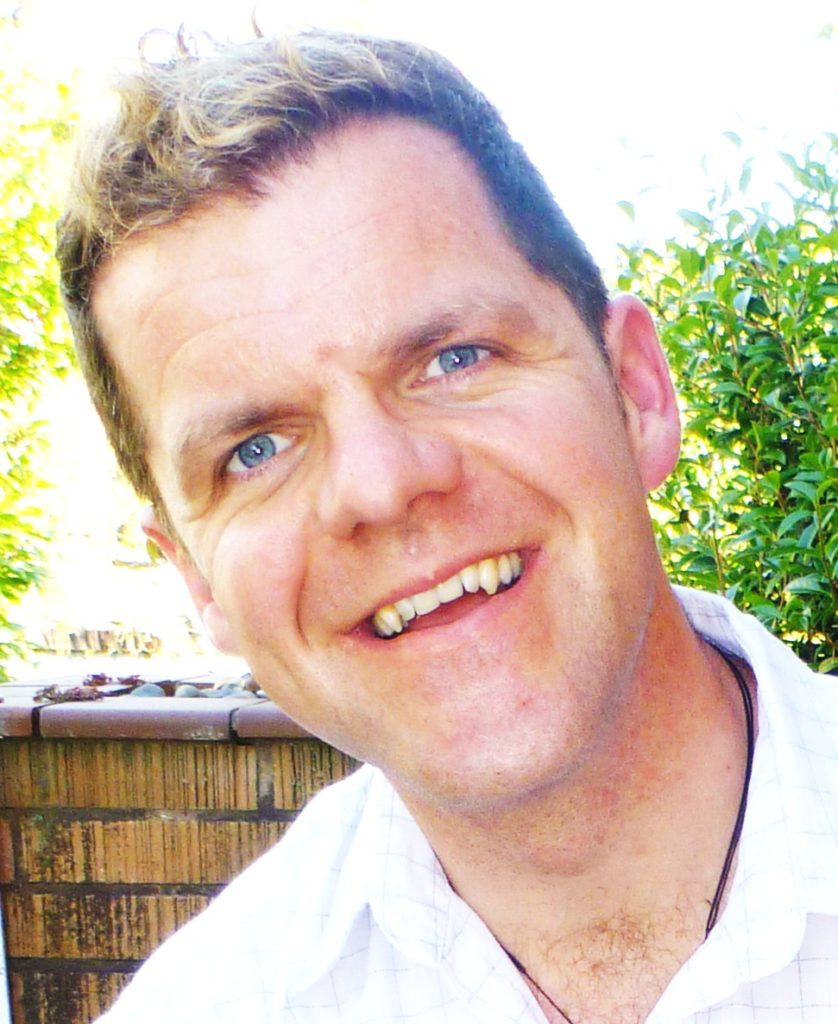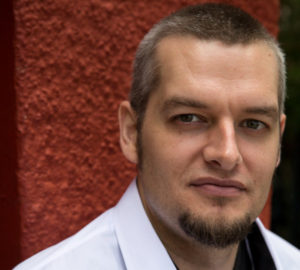Andy Evans decided to get more serious about his writing this year, and enrolled in two NZ Writers’ College courses, namely, The Basics of Creative Writing and Literary Short and Flash Fiction. Read about his literary successes since then below.
He is currently working on his first novel, but hopes to continue writing the occasional short story. Find out more about Andy and his fiction here: http://www.andyevansfiction.com/
1. What writing successes have you had since completing your course?
I’ve had two short stories published and, as an added bonus, received either payment or a monetary prize for them too. The first was a story called “The Wooden Hills” which was published in Takahe magazine (edition 76), which is circulated throughout New Zealand in every public library. The second was a story called “Gravity”, which won third place in the NZ Writers’ College 2012 Short Story Competition. I thought the first story was a fluke, but now that a second story has gained some recognition my confidence has really grown.
2. How did you feel the first time you wrote a piece that was published?
It was an emotional roller-coaster. The editor at Takahe magazine wrote to me, saying that she saw potential in my story; however, she didn’t like the ending, and would I be prepared to change it? I said I would. I immediately got to work on an alternative ending based on the guidelines she’d given me, and with the promise of publication lying before me. A few days later I sent the rewrite. I got an email back from the editor saying that she didn’t like the changes I’d made, that my story had lost a lot of its former subtlety. I was devastated. I was certain that I’d squandered my one and only opportunity. I was asked to think about my story some more (Did this mean there was still a chance of getting it published?). The editor said she was away from her desk for a week and she’d think about it too. During that week I did a second rewrite, taking a totally different tack. It paid off. The editor loved the changes, and said that she was happy to publish the story.
I think the grin remained on my face for at least a week.
I ordered extra copies of the magazine for my parents and my mother-in-law. My wife and I toasted with a glass of wine. I decided that getting my first story published was such a momentous occasion for me, that I’d splash out with my earnings: I bought a limited edition hardcover book of one of my favourite authors, even though it exceeded what I was paid for my story.
I now realise what a wonderful opportunity this editor gave me. Previous stories I’d submitted elsewhere had all been rejected. I was beginning to wonder if I was deluding myself with the hours I spend writing each week. To suddenly encounter an editor who not only liked one of my stories but was willing to work with me to get it to a publishable standard was amazing. I’m very fortunate. I won’t forget it.
3. What tip(s) would you give other aspirant writers in terms of finding ideas, the writing process, and staying motivated?

I generally use my computer and software called Scrivener for my writing. It allows me to plan a story with as much or as little detail as I want, or dive straight in and write the first draft by the seat of my pants. My methods vary depending on the story, but for longer pieces I prefer the planning approach. Once I have the first draft, I like to put the story aside for at least a week, before I think about rewriting. I tend to get a little obsessive about rewriting. One of my short stories had seventeen rewrites before I was satisfied with it.
To stay motivated, I always write the kind of stories I want to write, as opposed to what others might expect of me or the genre that might be popular and sell more readily. I’ve always had a huge fascination with the horror genre. There’s no greater feeling than writing some scene and scaring yourself silly.
The other thing that helps keep me motivated is having mates who also write, and who I like to meet up with every month or so. It’s great to get feedback on your work and all the encouragement that comes with it.
4. How did the writing courses improve your writing?
I’ve completed “The Basics of Creative Writing” course and “Literary Short and Flash Fiction” course. The first course really helped me to look at the elements that make up a story scene, particularly how to build emotion in your readers and how to blend all these elements into a cohesive whole. The second course built upon this foundation, applying it to the short story. I learnt much, including about how to create deep, believable, non-cliched characters and how to add foreshadowing in my stories.
5. What was the single most important lesson you walked away with from your studies?
A difficult question. I think perhaps the difference between “telling” a story and “showing” a story.













